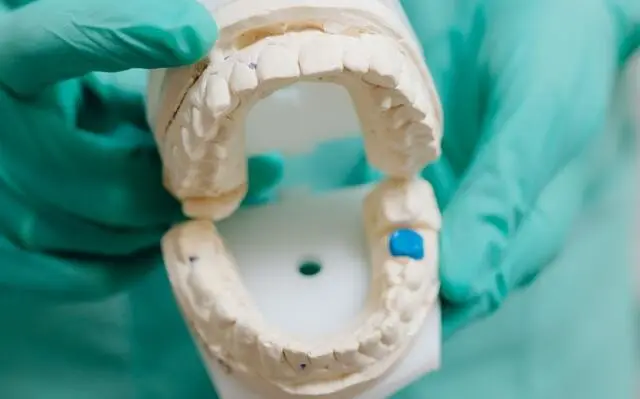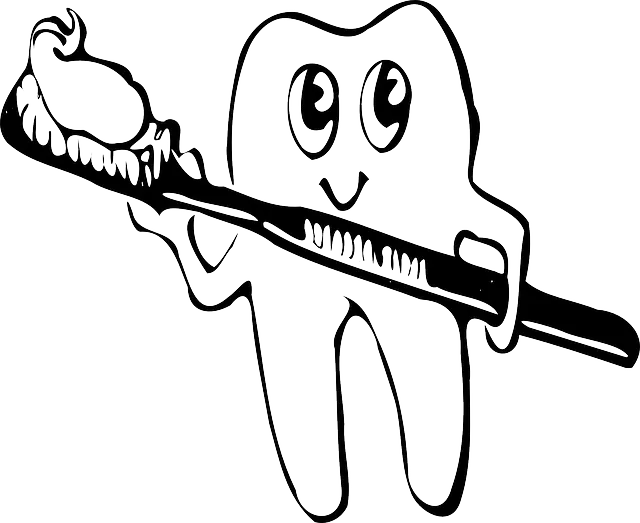One of the prevalent dental problems in people of all ages, especially kids (bottle teeth rot) and the elderly, is rotting teeth from not brushing.
Rotten teeth or decaying teeth can result from a plethora of reasons. Consuming starchy and sugary foods, trauma to teeth, poor oral hygiene, and often genetic susceptibility can lead to dental caries. As a result, your teeth start blackening, causing pain and sensitivity.
Once the teeth start to rot, there is nothing much you can do except seek proper dental treatment. However, you can easily prevent tooth decay and keep your dental health at an optimum level by practicing good oral hygiene habits.
How do you know that you have rotten teeth, and what can you do to stop it?
Initially, it’s really difficult to find out rotting teeth from not brushing because at this stage it is painless and stays out of sight. The patient often notices rotting teeth when things are way out of hand- especially if they are not regular with routine dental exams and check-ups.

Causes of Rotting Teeth from not Brushing
You may eat healthy food and do everything right, yet if you are not brushing your teeth regularly with the proper technique, your teeth will fall prey to dental problems.
The biggest culprit behind compromised dental health is a sticky, translucent layer called “dental plaque.” This layer forms naturally on the surface of your teeth above the gum line. It is easily removed with proper brushing.
However, if you skip brushing your teeth, the dental plaque thickens, harboring teeth-harming, acid-producing bacteria. Over time, this sticky layer turns into a rock-hard layer called “calculus,” or tartar as you may know it, locking the bacteria in the layer.
Let us explore the causes of rotting teeth from not brushing or others so that you can avoid them:
Unhealthy diet
Consuming sugary and starchy food and beverages regularly increases the chances of black decaying teeth significantly. The frequent influx of sugars into the mouth provides food to the acid-producing, teeth-rotting bacteria- and you know what will happen next.
The acids will break down the outer layer of the tooth, enamel, which is supposedly the hardest substance in your body. Yes, you have read that right. Enamel is even harder than your bones, yet it cannot resist the constant acidic attacks from the bacteria and succumbs to the destruction.
Similarly, consuming sugary, fizzy drinks or having any underlying medical condition such as stomach problems or acid reflux also contributes to the acidic environment in the mouth. As a result, enamel starts to dissolve, exposing the tooth’s inner, more sensitive layers.
Dry mouth (Hypo-salivation)
Some people have low production of saliva in their mouth. Now, you may think that what is saliva’s role in preventing black rotten teeth?
Saliva plays a crucial role in washing down the bacteria lingering in your mouth and neutralizing the acidic environment preventing rotting teeth. However, saliva cannot withstand the constant and frequent acidic environment.
Moreover, if the salivary glands in the patient’s mouth produce low saliva naturally or because of any other disease or medication, they are susceptible e to tooth decay- even if they are eating healthy and maintaining good oral hygiene.
A dry mouth accelerates the production of dental plaque (as there is not enough saliva to wash it off) and the accumulation of bad bacteria.
Deep dental crevices
Dental crevices are the grooves or “gingival sulcus” where the teeth come in contact with your gums. If you have deep dental crevices, food particles and bacteria in plaque can settle in these grooves, making it hard to remove them through brushing.
Fluoride deficiency
Fluoride is usually present in your toothpaste and potable water. This is a natural mineral that can help strengthen the dental enamel, making it resistant to rotting or decaying.
However, it is essential to regulate the use of fluoride to a certain amount. If you get fluoride deficiency, your teeth can start rotting. If you intake too much-fluoridated water, your teeth will get white spots and become weak over time.
Existing oral health problems
There is a high chance of rotting teeth from not brushing if there are any existing gum problems or dental problems like chipped or broken teeth, as these problems can exacerbate the plaque formation and acid production from the bacteria.
Genetic susceptibility
Often, everything is okay. You eat healthily, practice good oral hygiene, and visit the dentist regularly like a good patient, yet you fall prey to dental problems. This is because your genetic susceptibility and dental problems run in your family.
Therefore, it is not just the money or assets you inherit but the oral and overall health problems.
Poor oral hygiene
All the cases come down to one thing, and that is the occurrence of rotting teeth from not brushing properly. You can be doing everything, but if you are doing the brushing wrong, then dental decay is no stopping.
While you can remove dental plaque with brushing and flossing, removing calculus is out of your league. To remove it, you will have to undergo professional dental cleaning (scaling).
If you do not go for dental treatment, the bacteria in the layer will turn the food particles- sugars and starch- into acids. Then this acid will invade your teeth, destroying their structure and causing black decaying teeth with pain, sensitivity, and other dental problems.

Baby bottle syndrome (Bottle rot teeth)
Bottle rot teeth occur in infants and toddlers who drink milk from feeders. It is also called baby bottle or nursing bottle syndrome and leads to generalized blackening and rotting of all teeth. The main reason is that the baby sleeps with their bottle of formula milk, milk with added sugar or juice in their mouth.
Bottle teeth rot can also result due to many other reasons, including:
- Giving pacifiers to babies with honey or other sugars on them while they sleep
- Decay or bottle rot teeth causing bacteria passed onto the baby from the mother, usually through saliva- when they put the baby’s pacifier or feeding spoon in their mouth to clean them
As the baby sleeps with loads of sugar accumulating in their mouth, it promotes the development of plaques leading to generalized dental decay.
It is essential to seek immediate bottle rot treatment and eliminate the cause of bottle rot teeth.
What is the bottle rot treatment?
It is common to see bottle teeth rot in feeding babies. The parents are unaware of sugar-added liquids’ harm to their babies, especially when given at night. Bottle rot teeth rapidly destroy all teeth in the baby’s mouth, usually in both arches (jaw).
Therefore, it is important to consult the pediatric dentist and get the bottle rot treatment as soon as possible.
How can you prevent bottle teeth rot?
- Avoid adding sugars to the baby’s milk or giving them juices in feeders
- Do not share your saliva-laden spoons or pacifiers with the baby
- Start brushing your baby’s teeth as soon as the first tooth pops with a very small amount of toothpaste- it is better to get it recommended by the dentists
- If your baby is on formula milk, wipe their teeth and gums with a damp wash cloth or damp gauze after each feed
- Do not use sweetened pacifiers, and always clean the pacifier after each use
- Supervise your child so they brush well and rinse the toothpaste properly until they become capable enough to do it by themselves
- Teach your kids about rotting teeth from not brushing properly when they turn 6-7 years
- Wean off the baby from feeding bottles and pacifiers as soon as they turn 2
- Educate your child about eating healthy
If bottle teeth rot progresses with inadequate or poor treatment and precautions, it can lead to severe pain and sensitivity in kids.
Symptoms of Black Rotten Teeth
Now that you know all the causes contributing to deteriorating dental health, it is crucial to learn about the signs and symptoms of rotting teeth.
- Dental pain (toothaches)
- Sensitivity to hot and cold food- extreme temperatures
- Holes or cavities in your teeth
- Pain on biting and chewing food
- Staining or discoloration of teeth
- The appearance of black decaying teeth or black rotten teeth (it may start as a tiny, brown, or grey-black spot)
- Pus or abscess in the gums or around the teeth
If you are experiencing any symptoms, it is time to visit the dental clinic.

Treatment for Rotting Teeth from not Brushing
If you have rotting teeth or see black rot teeth in your baby, do not neglect them. Dental problems only get worse with time. If you delay the treatment, the symptoms will get more painful, and the treatment will be more expensive.
After a thorough dental examination and diagnosis, the dentist can opt for the following dental treatments:
Professional dental cleaning
Dental plaques develop naturally, even if you do not have black rotten teeth. The dental personnel will recommend dental scaling and polishing to remove the plaque and instruct the patient to practice proper brushing to keep dental health intact.
Sealants and fluoride application
If there are mild rot teeth that can be managed with proper care, or you have genetic susceptibility or fluoride deficiency, the dentist or dental hygiene will recommend sealant or fluoride application to all teeth to ensure great dental health
Dental fillings
Black decaying teeth often need a proper dental restoration or a filling to stop their spread into the deeper layer of the tooth.
Root canal therapy
Ignoring the black rotten teeth is the worst thing you can do to yourself. When the decay is extensive, the tooth cannot get a dental filling, especially if the bacterium invades the soft dental tissue called the dental pulp. You will need a more extensive treatment such as root canal therapy for deeply rotting teeth from not brushing.
Extraction
This is the last resort and the worst-case scenario for rotting teeth from not brushing. If you let the rotten teeth breed in your mouth, the only option left will be to remove them. This is also true the bottle rot teeth in babies.

Prevent your Teeth from Rotting
Black decaying teeth are nobody’s friend. They compromise your dental health, make your smile look bad, and can crush your self-esteem. Because nobody wants to smile with rotten teeth.
The only thing better than getting treatment for rotting teeth from not brushing is actually to prevent them from occurring in the first place.
So, how can you prevent black rotten teeth?
The answer lies in the following:
- Brush your teeth twice daily with fluoride toothpaste and worth the proper technique
- Use dental floss daily
- Rinse your oral cavity with a dentist-prescribed mouthwash
- Eat healthy, fibrous food
- Rinse your mouth with water after every meal
- Avoid smoking or tobacco use
- Avoid eating or drinking sugary stuff
- Get the appropriate treatment for any underlying dental or medical problems
- Visit the dentist regularly, twice every year
The proper brushing technique to stop black decaying teeth
The best way to keep black rotten teeth at bay is to learn the proper brushing technique. Whenever you go in for a dental check-up, ask your dentist to teach you the proper brushing and flossing technique so you can practice excellent oral hygiene and have a healthy, sparkly smile.
While there is still time for your next dental appointment, we can help you learn the basics of the right brushing technique. We do not want you to get rotting teeth from not brushing properly.
- Keep your toothbrush at a tilted angle of 45-degree to the gums
- Move the brush gently, back and forth, up and down, with short strokes covering all the surfaces of each tooth
- Slightly brush the tongue as well to make the entire oral cavity bacteria-free
- Keep brushing for at least 2 minutes, and then rinse off with water
Here are some tips to optimize your brushing technique:
- Use a toothbrush with soft bristles
- Use fluoride toothpaste
- Change your toothbrush every three months
- Always properly use dental floss after brushing to remove the food particles from areas where the brush cannot reach, such as interdental spaces
Next time you visit your dentist and learn that you have rotting teeth from not brushing, ask them to teach you about the dental products. Learn the right techniques, use the best products, and get a sealant or fluoride application if necessary but never put your dental health at stake.
When you have healthy teeth, you have a happy life.
Key Takeaway
Your teeth deserve the best care, as healthy teeth ensure a healthy oral cavity. In addition, we all know that a healthy oral cavity is a gateway to a healthy overall body.
Visit your dentist regularly, and never, I repeat, ignore even the smallest sign indicating you have black decaying teeth. Moreover, keep an eye on your baby’s dental health to see if there are no indications for bottle teeth rot- if yes, get the bottle rot treatment to save your baby from any pain or suffering.
Therefore, the key to saving rotting teeth from not brushing is to start brushing your teeth regularly and keep smiling!
You may also love to read –

